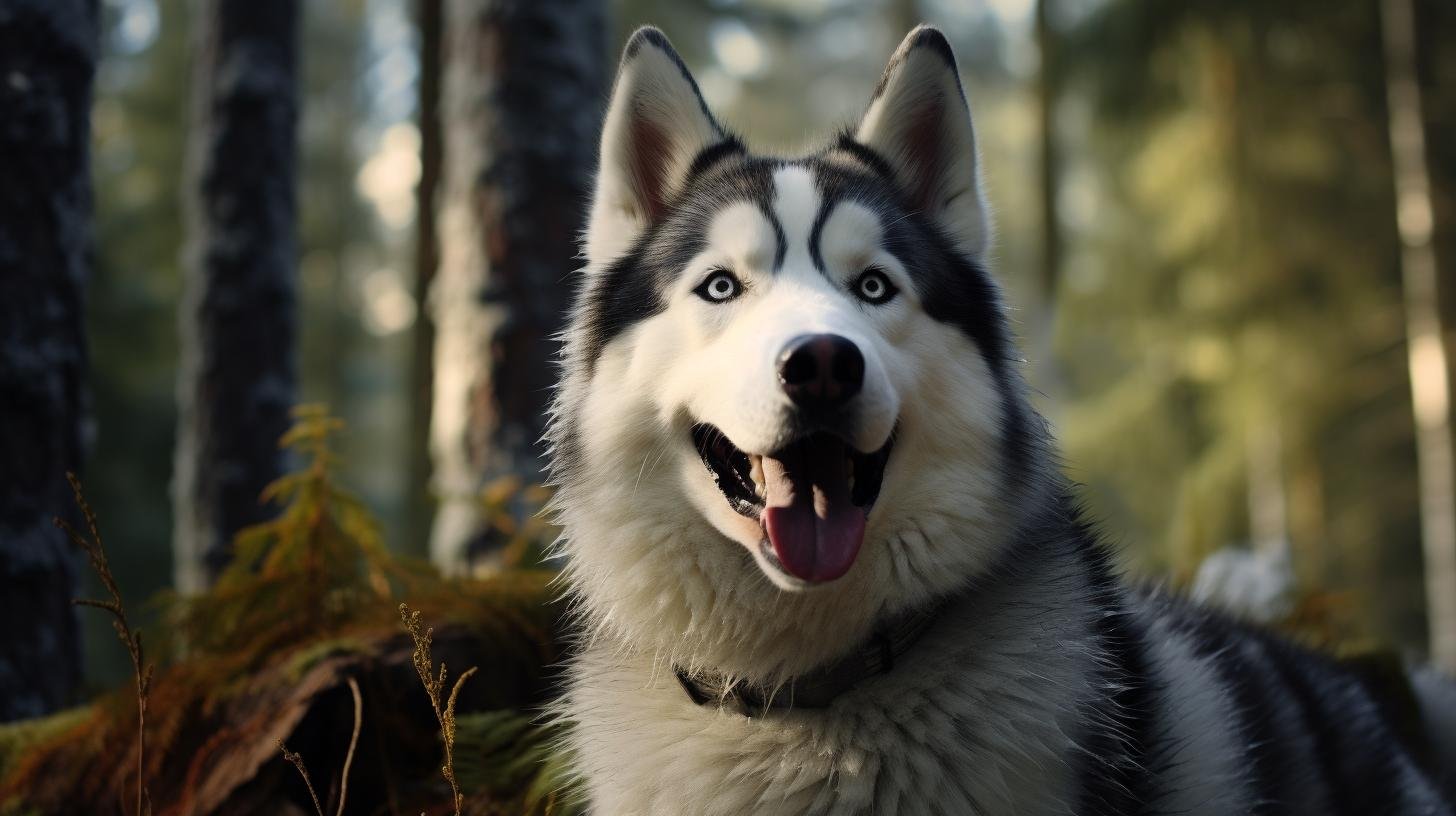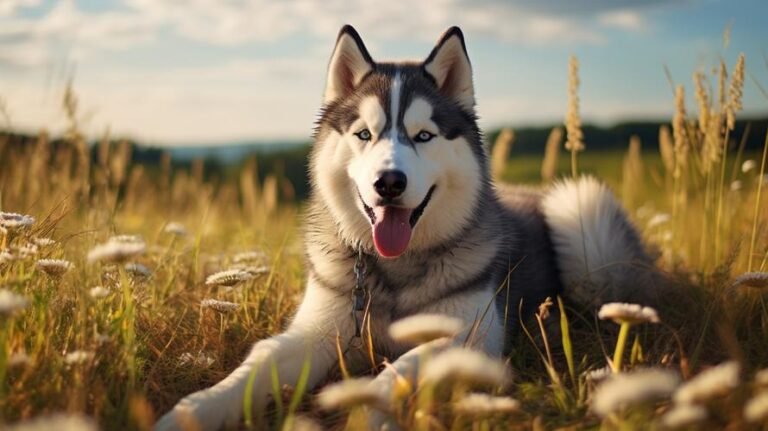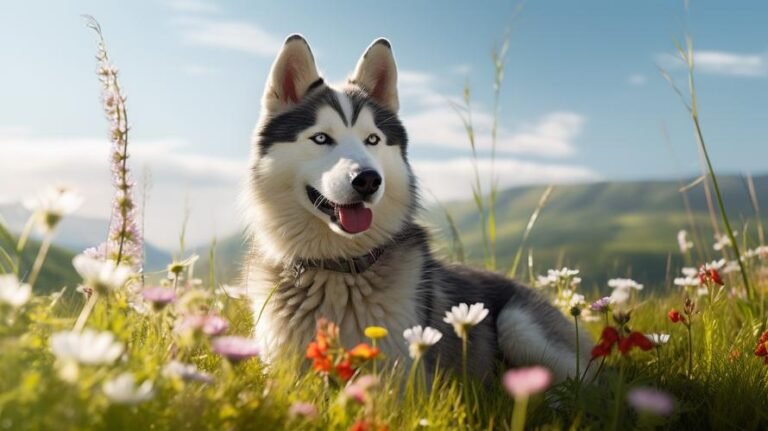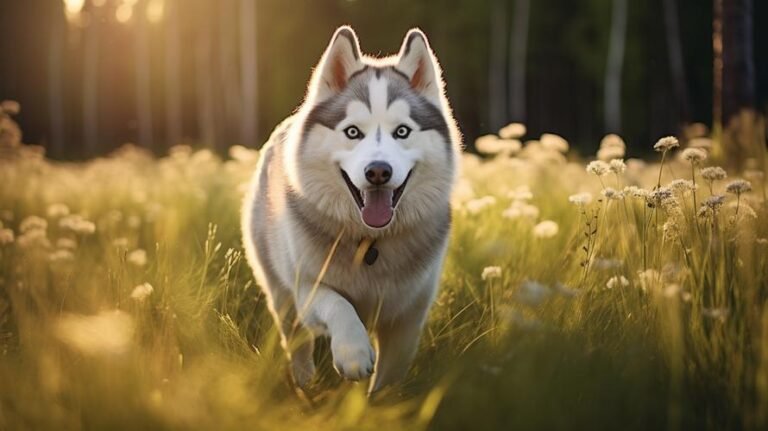Buckle up, future Husky parents! We’re diving into the world of Siberian Huskies – a breed equal parts stunning and spirited, laden with a rich history and a potential lifetime buddy. But a burning question that often pops up in mind is—is a Siberian Husky a healthy dog? Fortunately, you’ve come to the right place to learn the A-Z’s of Siberian Huskies and their wellbeing which surprisingly, starts from the freezing wilderness!
Many centuries ago, a native tribe called the Chukchi bred this active furball in the harsh Siberian climate. Tasked for sledding and to help the tribe cover large distances, these dogs were bred to be healthy, tough, and resilient. Imagine running miles in bone-chilling temperatures and still wagging your tail! A pat on the back—or rather, a treat to the paw—for Huskies for being such health troopers.
Speaking of health, one defining characteristic that makes Huskies as one of the healthiest breeds is their unique genetic makeup. Siberian Huskies belong to the ‘genetically primitive dog group’, a category starkly untouched by human-induced crossbreeding. The result? A stalwart breed that enjoys relatively fewer health issues than their overly-bred counterparts.
But hold your horses—or in this case, your Huskies! While they’re healthier than many breeds, these stunning creatures aren’t entirely immune to certain health problems. Some common issues include hip dysplasia—an abnormal formation of the hip socket, and eye disorders such as Progressive Retinal Atrophy (PRA), cataracts, and corneal dystrophy. You can spot these issues early on by keeping a lookout for any strange behaviors, like changes in your Husky’s appetite, activity level, or walking style.
However, it’s not all doom and gloom. Most of these issues can be managed or even treated with the right veterinary care. This is why regular check-ups with your vet are as crucial as binge-watching your favorite dog movies together!
Interestingly, a Husky’s health is often mirrored in their coat. A Husky sporting a thick, shiny fur is usually an indication of a healthy pup. A thinning coat, on the other hand, maybe a mayday sign. So, while your Husky struts around flaunting its beautiful fur, keep a vigilant eye on its shine and volume.
Let’s paws for a moment here. Owning a Siberian Husky—or any other breed—is not only about managing potential health problems. It’s also about understanding the breed’s personality and their inherit energy levels.
Being athletic dynamos, Siberian Huskies demand tons of physical activity. Failing to provide it could lead to disruptive behavior and obesity—a growing health issue amongst dogs. So, if you’re thinking of adopting a Husky, you’ve got to be as active as a super-charged bunny. Or simply be someone who relishes a good run or two in the park every day. The saying that a tired Husky is a happy Husky holds incredibly right.
Now comes another essential bit of having a healthy Husky—feeding right. These dogs are known to be good eaters (aren’t we all?). Yet, their diet is anything but generic. While determining the appropriate diet, you should consider factors like their age, health status, and activity level. If you’re unsure, think about consulting with a well-versed veterinarian.
Remember: Your Siberian Husky’s health not only depends on its strong genetic make-up but also factors like daily exercise, a nutritious diet, and regular veterinary care. So, though they are undeniably more robust, it doesn’t mean they are entirely risk-free.
In conclusion, Siberian Huskies make for amazing companions with an impressive record of health but can still face a few typical dog health concerns. However, good lifestyle habits, regular vet visits, and an eye for details can effectively keep the health risks at bay. So, bundle up, because adopting a Siberian Husky might just be the coolest adventure you’ve embarked on!



